I had a backlog of half-baked blog posts from when I was working on my book. One of those blog posts was my thoughts on my trip to Tel Aviv back in May. I finally finished writing/editing that, and wanted to share it here. Enjoy!
I don’t know what the worst thing is that you could hear on a Sunday morning Wizz Air flight from London to Tel Aviv. Actually, that’s not true. The worst thing you could hear is either someone screaming “I’ve got a bomb!” from seat 4A, or the pilot announcing “Brace for impact!” as a surface-to-air missile bears down on your Boeing.
Both of those would suck.
Fortunately, my Sunday morning Wizz Air flight from London to Tel Aviv didn’t include either of these announcements. But it did include a not-so-great announcement.
After waking up at 4:30 AM for an hour-long Uber to the Stansted airport and spending the next five hours in seat 1C listening to an Orthodox Jewish man from Brooklyn explain, in excruciating detail, how modern Jewish rabbis have leveraged technology to streamline the kosher slaughter of cows (look up the tech behind kosher slaughterhouses. It’s fascinating how 21st century technology can be applied to Old Testament codes of conduct), I was 25 minutes out from Tel Aviv, in mid-descent, when the nose of the plane jerked up, the engines re-accelerated, and the pilot called over the speaker, “I apologize, ladies and gentlemen, but there has been an incident at the Ben Gurion Airport. We are headed back to London.”
A few minutes later, that announcement was followed up by the only message that could possibly be worse than” I’ve got a bomb.”
“We don’t have enough fuel to get back to London, so we’ll be landing in Serbia.”
(I promise you that no one en route from London (a great city) to Tel Aviv (another great city) has ever thought, “You know what? I’d rather be in the Balkans.” Luckily, the Serbians wouldn’t let us land there, so we ultimately refueled in Budapest, which is a solid backup to Tel Aviv.)
The funny thing about flying on Wizz Air, which, for my fellow Americans, is the Spirit Airlines of Europe, is that Wizz Air doesn’t have WiFi. So, after our ominous message from the cockpit, my new Orthodox friend and I spent the next hour and a half wondering what “an incident at the Ben Gurion Airport” might mean. Bomb? Missile strike? Some other, different, third thing? Who knows! As the only Gentile on the flight, I was amused to see that my Israeli counterparts couldn’t have cared less about this “incident.”
“There’s always an ‘incident,’ it’s Israel. Just go to Tel Aviv,” I heard a few people grumble. When your country is perpetually at war, I guess you get used to incidents.
Once we landed in Budapest, I googled, “ben gurion airport incident” and saw footage of a smoldering crater in the road about 300 meters from the airport. It turns out that the one Houthi missile the Iron Dome failed to intercept in Q2 2025 hit right as my plane entered Israeli airspace. I’m glad that I was able to kick off my trip with an authentic Israeli experience.
Despite the unforeseen difficulties, I did, ultimately, make it to Tel Aviv. But it wasn’t a simple journey. Most airlines, in response to a missile hitting an airport, cancel their flights for a few days. That makes sense. It’s probably bad for business if a missile hits a plane? And even worse for business if a missile hits a plane with passengers on it?
But it’s also very good for business if you are one of a few opportunistic airlines who maintains, or even expands your flight offerings in the face of conflict. Your pricing power is infinite. So, I rebooked a Budapest to Tel Aviv flight for 11 PM, with a 6 AM layover in Dubai, on a 3rd-tier Middle Eastern budget airline called “FlyDubai,” fully accepting that I would deal with a post-red eye morning from hell upon arrival, before, at the last minute, changing to a Wizz Air flight to Tirana, Albania, to catch an 8 AM Sundor flight to Tel Aviv the following day.
I got to visit the Balkans after all.
(Sundor is a subsidiary of El Al, the flagship airline of Israel. Fun fact: El Al’s flights have missile defense systems. For their new planes, anyway. There’s not a chance my Sundor flight from Tirana had flairs. Another fun fact: El Al’s stock price jumped 7% after the airport got hit. Again: missile strikes are good for the airline business if 1) you are the one airline not scared to fly in the wake of a missile strike, and 2) your customer base is also largely undeterred by missile strikes. God bless Israel, and God bless the Israeli aviation sector.)
So, I flew to Tirana at 9 PM. Tirana, or at least the area of Tirana immediately surrounding the airport, felt like the architectural equivalent of a cigarette. Which makes sense: society is nothing but a collection of individuals, and everyone around the airport was smoking cigarettes. The guy who checked me in at the hotel made a point to note that my room had a balcony, in case, you know, I wanted to smoke cigarettes.
I didn’t want to smoke cigarettes; I had done that on the flight. I’m kidding, of course. But if Albania has an airline, I bet they’ll let you smoke cigarettes on it.
Anyway, after four hours of sleep, I woke up, drank an Albanian coffee (which I imagine would *hit* if you followed it up with a cigarette), and flew to Tel Aviv. For what it’s worth, the day after a missile hits an airport is probably the safest day to fly to that airport. The Iron Dome isn’t going to miss twice in a week.
And that, my friends, was my introduction to Israel.
Why go to Israel? Well, I’d always wanted to go to Israel. As a good Southern Baptist boy who, at the age of 4, disproved my pastor’s claim that “there aren’t flying horses in Heaven,” (Elijah was taken to heaven in chariots pulled by flaming horses. Check mate, Brother Wayne), I was fascinated by the country that dominated the origin story of my religion.
I was supposed to go to Israel in May 2024 with some friends from graduate school, but we cancelled that trip after October 7th. And I was supposed to go for a wedding in February 2025, but I had a wedding in Guatemala the weekend before, and I was moving to San Francisco the weekend after, and there aren’t many good flight routes from New York to Guatemala to Tel Aviv to San Francisco.
But in May 2025, I had an opportunity to go for work. And, despite my predator missile-induced delay, Tel Aviv was sick. And Jerusalem is too. So, I want to share my 28-year-old-Gentile’s perspective of Israel.
From the moment I walked through customs, it was obvious that the whole country was on high alert. No surprises there: when a country in your region that’s 10x your size would love to wipe you off the planet, your airport security checks are going to take a bit longer. The customs agents ask you detailed questions about your travel plans, and they don’t stamp your passport because several MENA nations will block entry for any traveler with an Israel stamp on their passport.
But then you leave the airport, and you Uber into the city, and a highway through the desert gives way to this coastal city that is a blend of Barcelona, San Francisco, and New York. Tel Aviv’s boardwalk is this gorgeous, multi-mile expansion on the beach dotted by bars, restaurants, and outdoor gyms, and the sunset over the Mediterranean horizon is just gorgeous.
Silicon Valley is a fairly “small” world in that a lot of founders and investors are, at most, one degree of separation apart, but the Tel Aviv tech sector is even smaller: pretty much every founder served in the military together at some point, and the offices aren’t just in the same metropolitan area, or even the same city, but the same neighborhood: it’s basically a requirement that if you manage at least $100 million or raise at least $5 million, you open an office in Sarona Market. Half of the VC offices in Tel Aviv were former Knights Templar buildings.
And on Thursday and Friday evenings, every bar and club on Rothschild Boulevard was slammed until four in the morning.
This is not to ignore, of course, that there was a literal war going on. Walls near the city center were plastered with posters of missing persons kidnapped by Hamas, and signs around the city marked the nearest bunker if you hear sirens. But, despite the constant threat of missiles and such, everyone I met in my week there 1) was incredibly kind and welcoming and 2) maintained a dry, if not quirky, sense of humor. I spoke to a couple of founders who casually mentioned, “Yeah, our Q1 numbers were a bit off because our CTO was fighting in the war, but now…” like it was just a normal part of life. Because it was.
Oh, and everyone was attractive. Like, without a doubt, Tel Aviv had the most attractive general population I’ve ever seen. Forced military service, the imminent threat of nuclear annihilation, and a Mediterranean climate with near-perfect weather year-round is the perfect combination for muscle tone and a sharp sense of humor, I suppose.
I would probably rank Tel Aviv as my second favorite city in the world, after the section of Manhattan that resides below 14th street and excludes Canal Street. If I was Jewish, Tel Aviv might be number 1.
I stayed at the Mayor House hotel near Dizengoff Square (highly recommend. The rooms are great, staff is very nice, and there’s a beautiful rooftop pool), which was a 10-minute walk from the beach, and I started the next three mornings with a run through town, looping back up the beach, before breakfast. I don’t run much, besides the occasional two-mile stroll down the Westside Highway in Manhattan, but I do think if I were more of a runner, Tel Aviv’s boardwalk would be my favorite run?
I was in Tel Aviv for work, and the first thing I noticed was that everyone, quite literally everyone, knows everyone. Especially in the technology / VC sectors. We hosted a happy hour for founders and investors when I was in town, and I sent out probably ~30 invites to the happy hour asking guests to “Invite interesting folks you know.”
Around 150 people showed up a few weeks later.
It was remarkably easy to meet people, and several of my friends / acquaintances with ties to Israel introduced me to their founder and investor friends in the area, with a few of those folks becoming friends themselves (hello, Orri and Rachel!) I met with founders building everything from higher conversation e-com landing pages to AI-enabled wearable technology, and because literally everyone works near Sarona Market, I spent the better part of two days just walking laps around the neighborhood, drinking one coffee at a time.
I also received more restaurant and night life recs than I could possibly explore in six days (though I tried my best to dabble in as much of the local cuisine as possible. Considering that I lived above one of NYC’s premier Israeli restaurants for two years, I’ve had my fair share of shashuka).
I did not, for what it’s worth, get all that much time to check out the nightlife: the whole missile strike thing limited the flights out of Tel Aviv, and I had to catch a Friday AM flight to Athens to get back to America, but ideally, I’ll stick around a bit longer next time.
The contrast between the Israel I had seen on television and online versus the Israel I saw in person was sharp. Judging from Twitter, I thought I would be constantly fearing for my life, and yet, while I was there, it was remarkably chill. I may as well have been in Barcelona or Buenos Aires (frankly, Israelis, Argentinians, and Catalans have somewhat ambiguous aesthetics). People seemed generally happy and jovial, and, like anywhere else, they wanted to eat and drink with their friends, hang by the beach, and just have fun. I mean, sure, had a siren gone off, I would have been shuffled to a basement bunker with 100 strangers in minutes, but the day-to-day was no different than the day-to-day anywhere else, other than the median attractiveness was a point or two higher.
And the locals seemed largely grateful to meet Americans willing to visit Tel Aviv. Camaraderie comes easy when your “welcome to Israel!” story involved get re-routed through Albania by a missile on your way to host a happy hour in Israel.
I also spent a day visiting Jerusalem, which, if you ever visit Tel Aviv, you need to include on your visit. The entire country is the size of New Jersey, and the train from Tel Aviv to Jerusalem only takes about 30 minutes. And Jerusalem is just… fascinating. On one hand, the infrastructure is cutting edge: Jerusalem’s train station is this modern, glass and stone behemoth that stretches hundreds of feet underground (every building in Israel is basically a nuclear bomb shelter), there’s an efficient light rail tram that runs from the outskirts of the city to the Old City, and glossy shopping centers with Rolex stores sit a 10 minute walk outside of the Damascus Gate.
But then you enter the old city, and you see hundreds of Muslims entering and leaving the Dome of the Rock (I wasn’t able to enter; entry times to the Temple Mount are strictly guarded), hundreds of Orthodox Jews pray by the Western Wall, and hundreds of Christians worship in the Church of the Holy Sepulcher, where Jesus was believed to have been resurrected.
Steps away from three of the holiest landmarks of the three Abrahamic religions, street vendors shill knockoff iPhones and other gimmicks you would find in Times Square. It’s this wild juxtaposition of history and modernity in a city where countless religions, nations, and cultures have fought for thousands of years.
And now you can walk across the street and pickup your mobile-ordered Big Mac.
I spent most of my last full day in Israel just exploring Jerusalem’s Old City before making the ~45 minute walk back to the train station, and I stopped in the Mahaneh Yehudah market for dinner on the way back to Tel Aviv. And, while 24-year-old me would have FOMO’d into checking out the nightlife, staying out all night, and having a miserable travel day on Friday, 28-year-old me was terrified of missing one of the few available flights back to the US, and I passed out at a (somewhat) reasonable hour.
I haven’t written a new travel blog post in a while. That’s primarily because I haven’t done any crazy international travels in a while. One reason for the downtick in travel is that I spend more time in the “real-world” now than I did at 24. Shocker how that works! Responsibilities and such. But external factors are the only cause of this shift: I also just don’t have the same wanderlust that I did at 24.
Four years ago, my desire to see the world felt existential. I felt that staying in one place was killing me, and if I didn’t see as many new places as possible as quickly as possible, I was going to go insane. It’s one of those sensations that, if you’ve experienced it, you know what I mean. It’s irrational, but like any emotional experience, it’s all-consuming.
At 28, I’ve sobered up a bit. Maybe it’s a self-confidence thing, maybe I’m just washed. I don’t know. You get drunk in enough foreign countries and chase enough thrills with strangers and you realize that no single location has a monopoly on dopamine (though New York probably sits at the top of the leaderboard?) I know which places I like, and which places I don’t, and that existential dread of “not seeing the world” has dissipated.
But wanderlust or not, Tel Aviv is one place that I am very, very glad to have visited, and I hope to go again soon. Ideally on El Al, not Wizz Air. You know, because of the missile defense systems.
- Jack
If you'd like to follow along with the rest of this trip, subscribe below!
See below for the previous and next chapter:
Chapter 56: RV Trip Out West
Normally, these travel blogs detail my shenanigans abroad. The first 43 chapters covered my time spent out of the country in the year before I started business school, and the last 12 have covered international trips taken since school began.
Chapter 58: From India, with Love.
This is a quite-long, ~9,000 word travel blog. You may need to click the “keep reading” at the bottom to see the full message. Thanks!


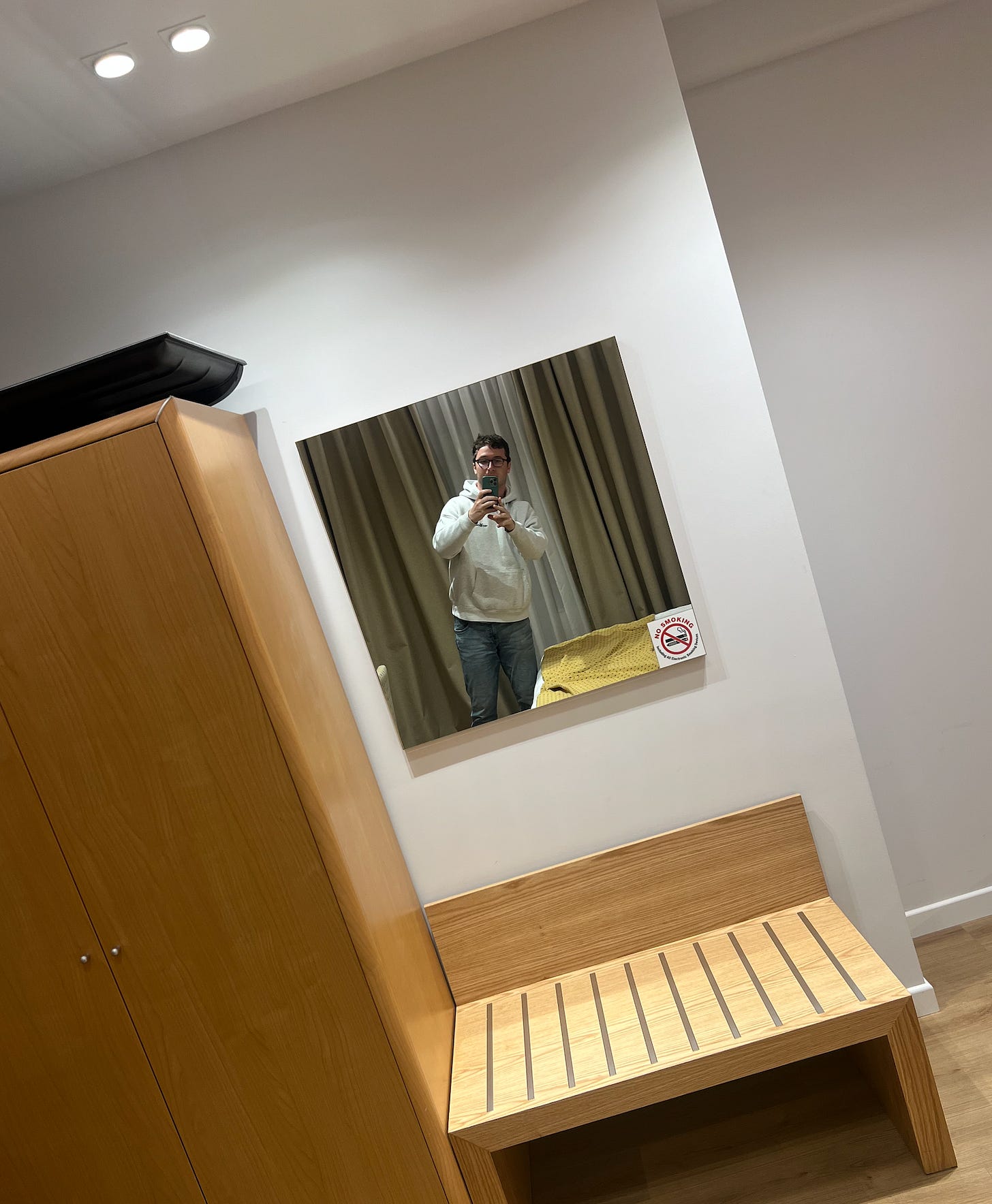

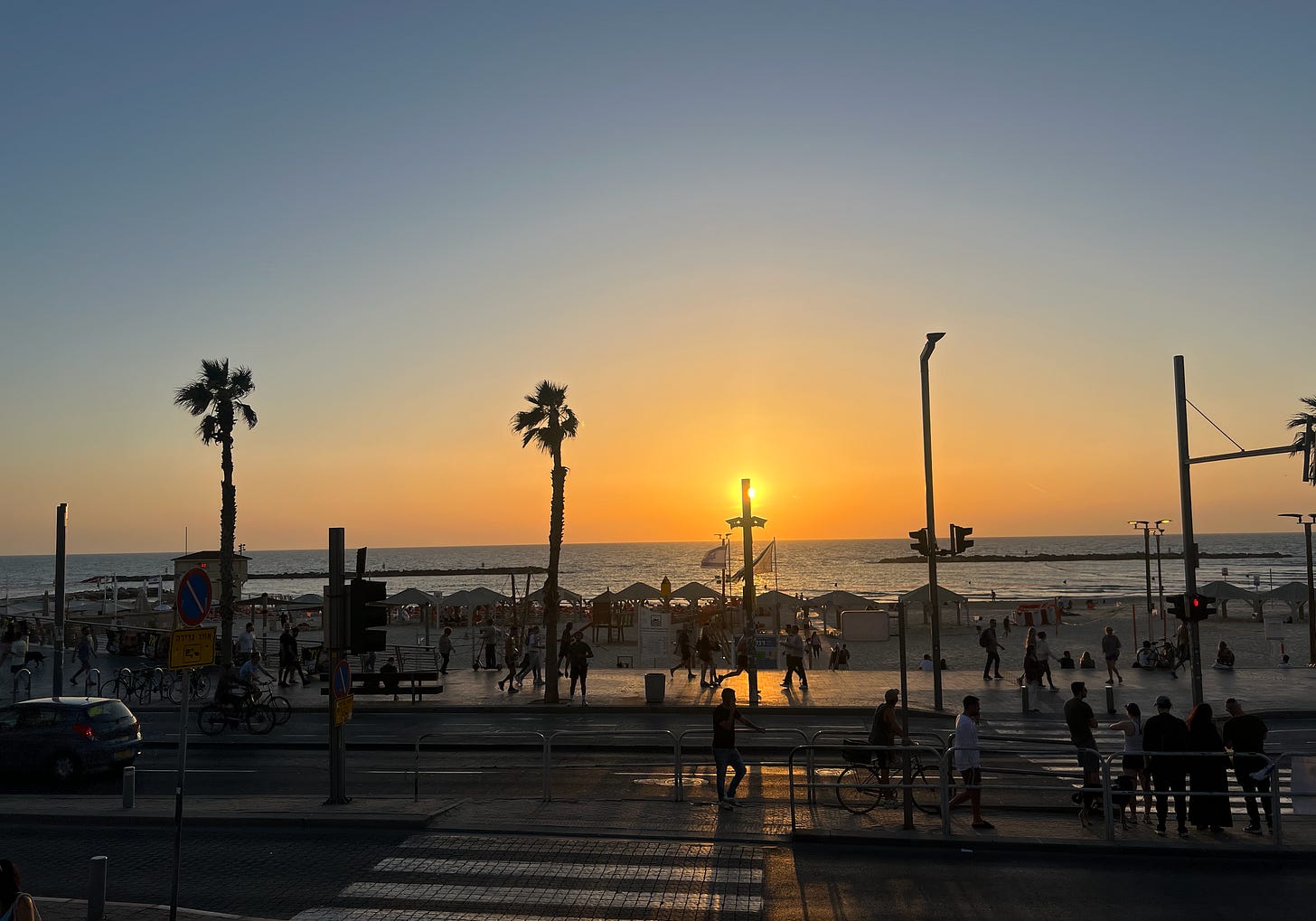
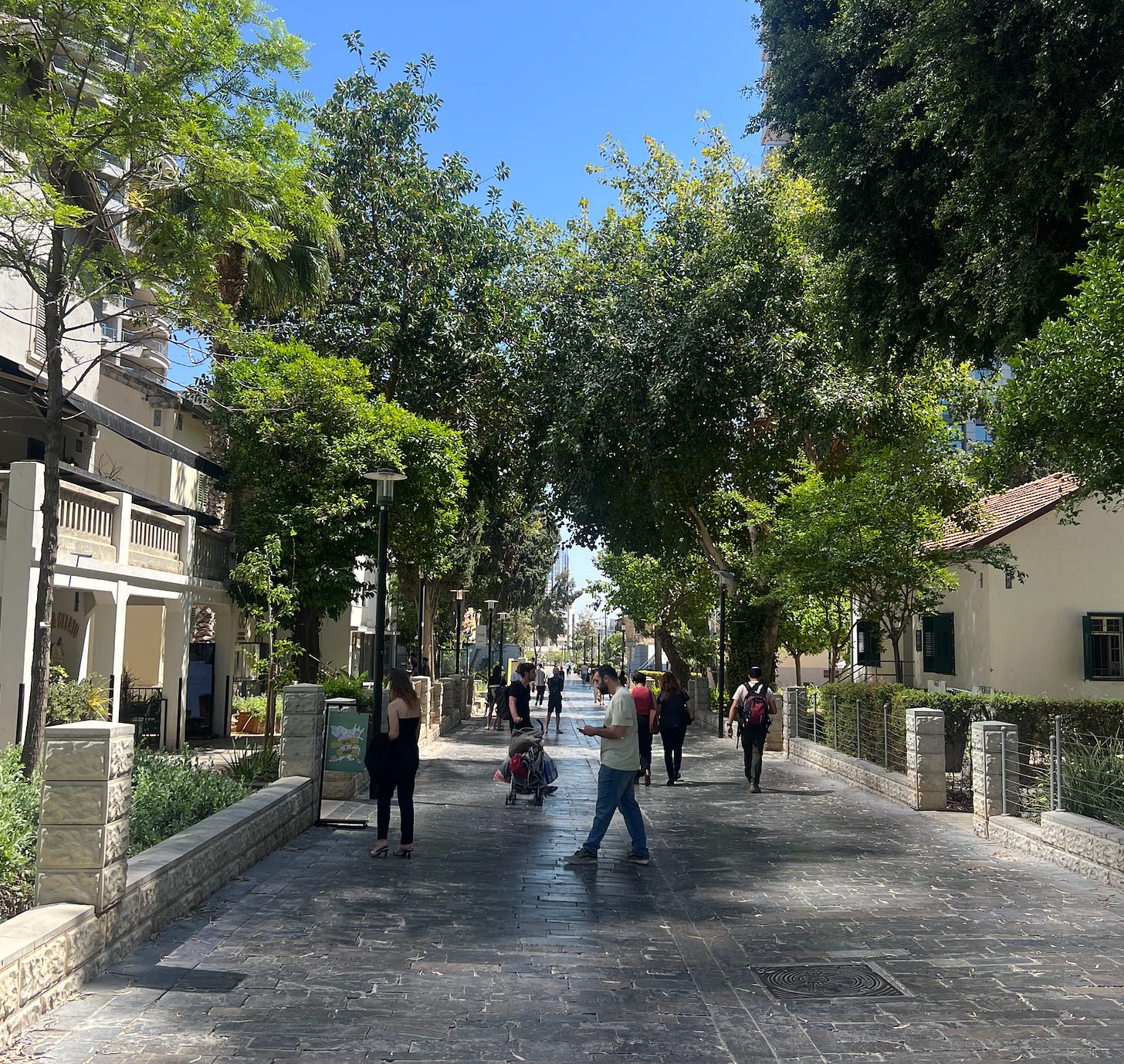
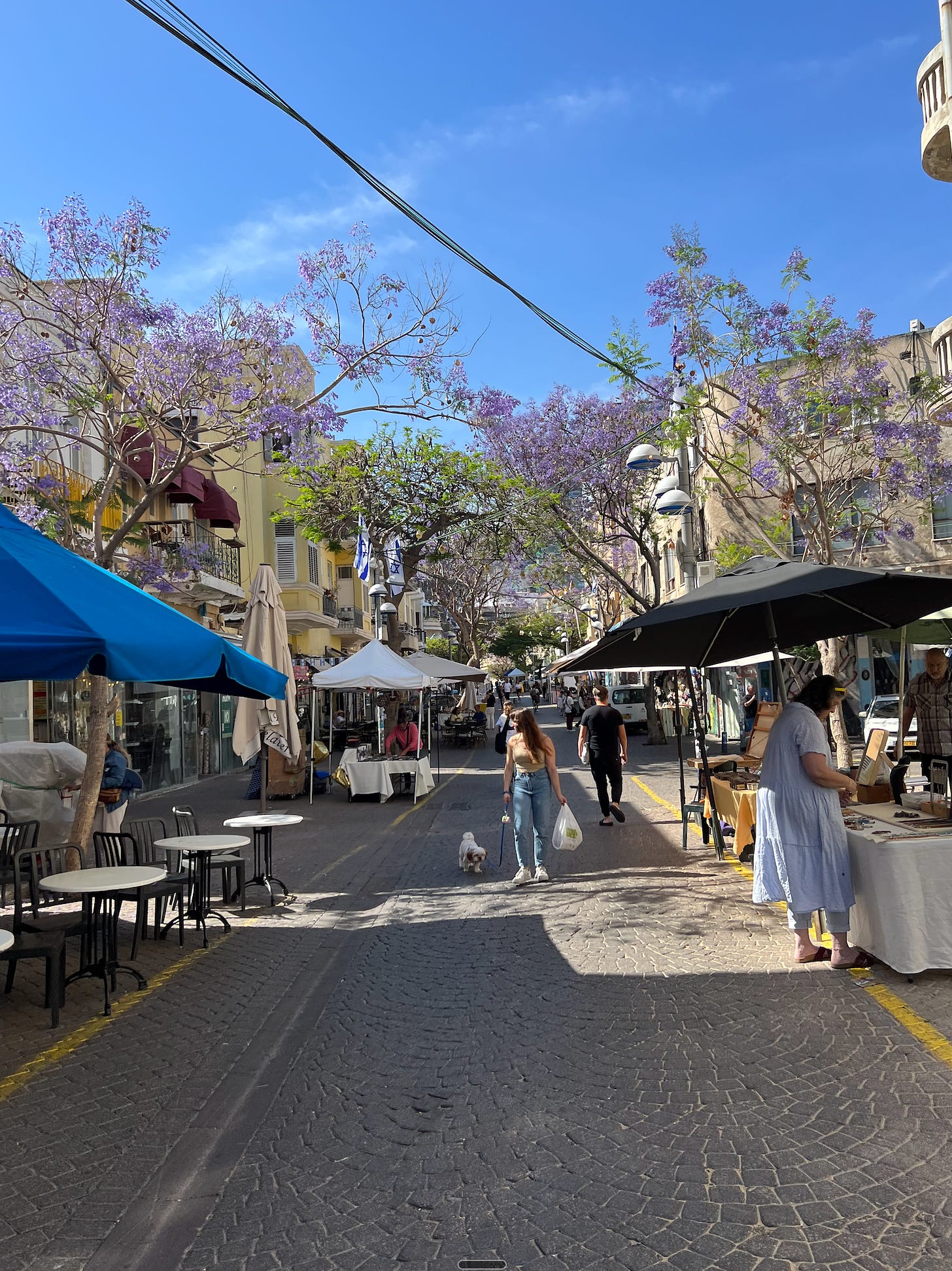
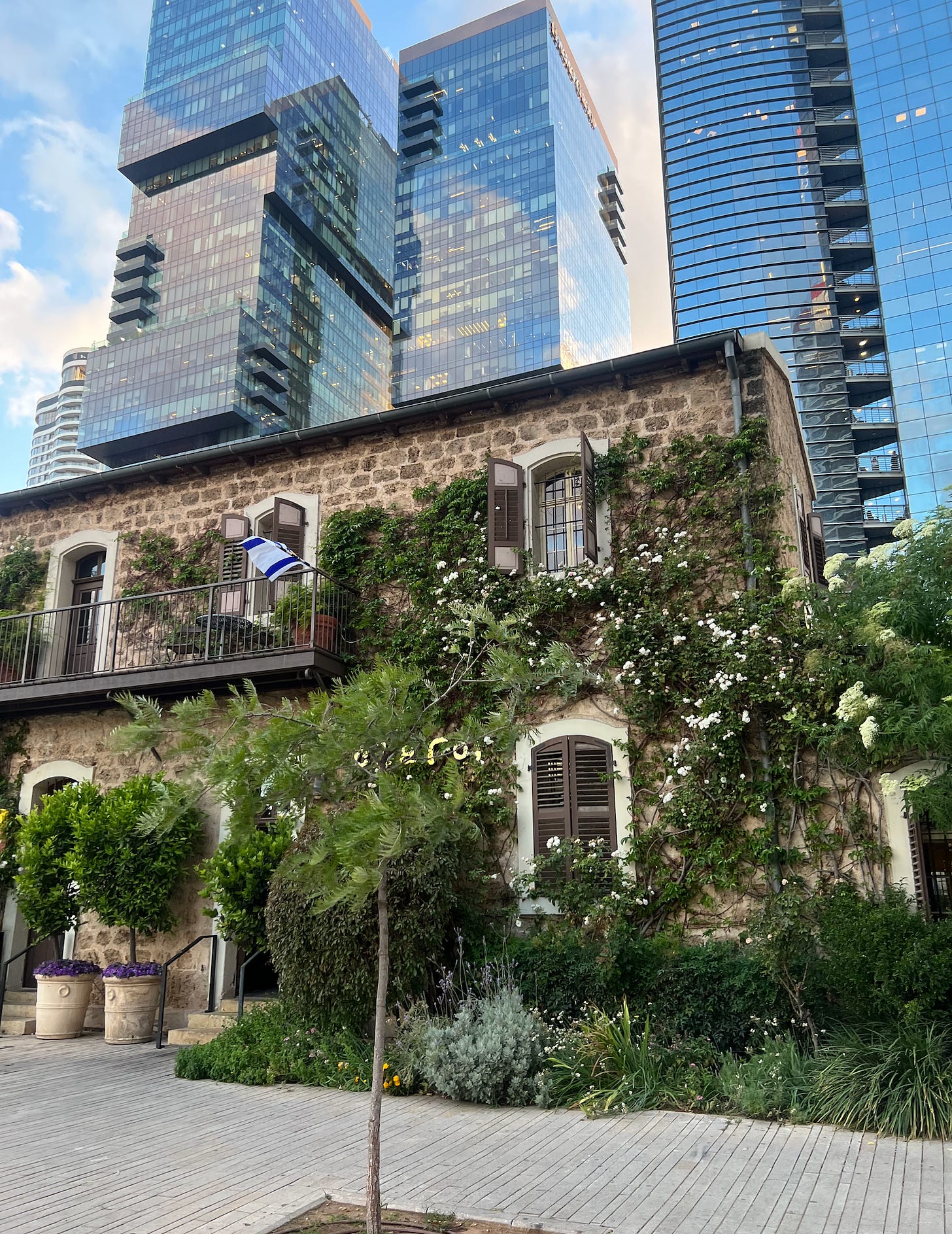
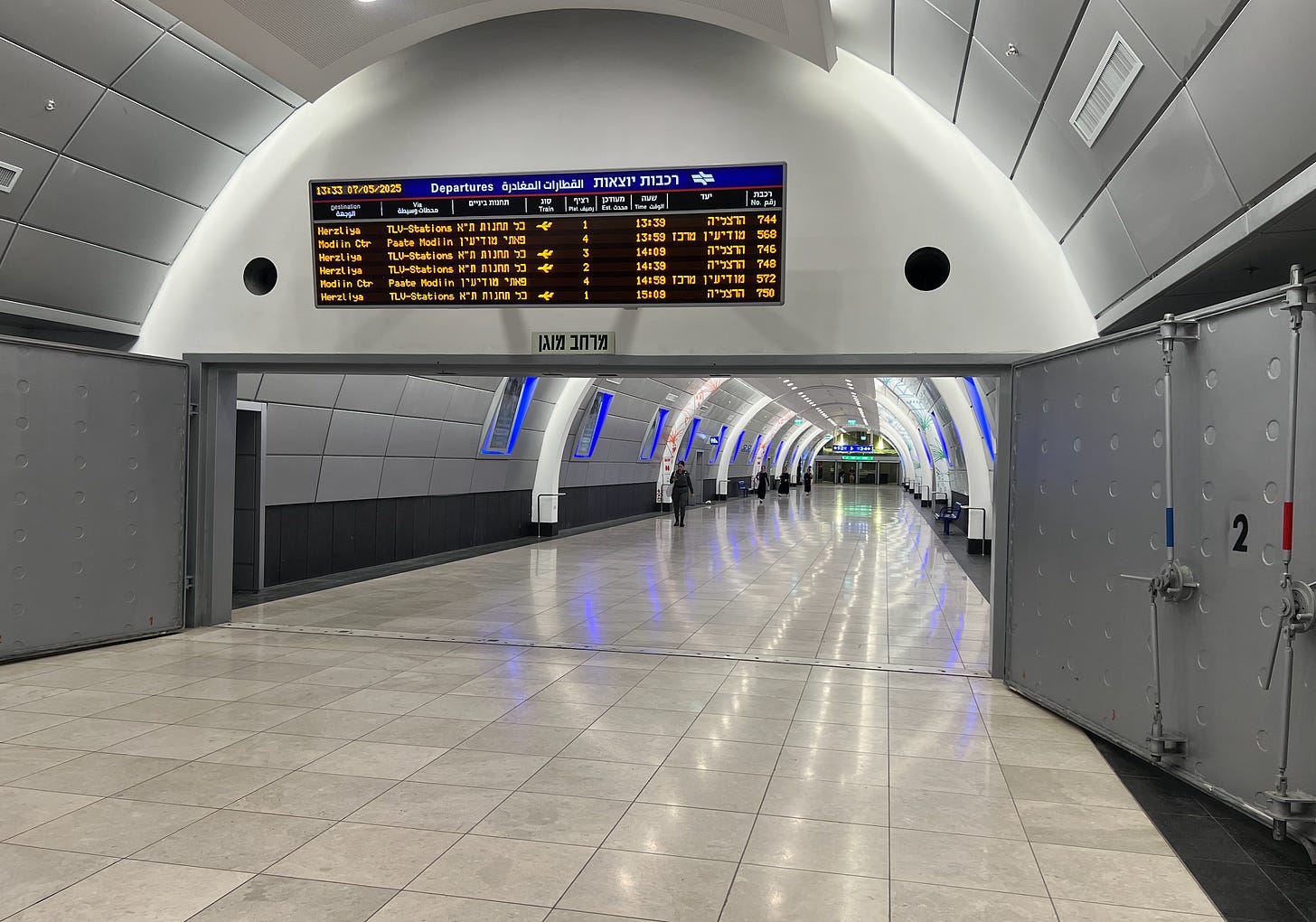

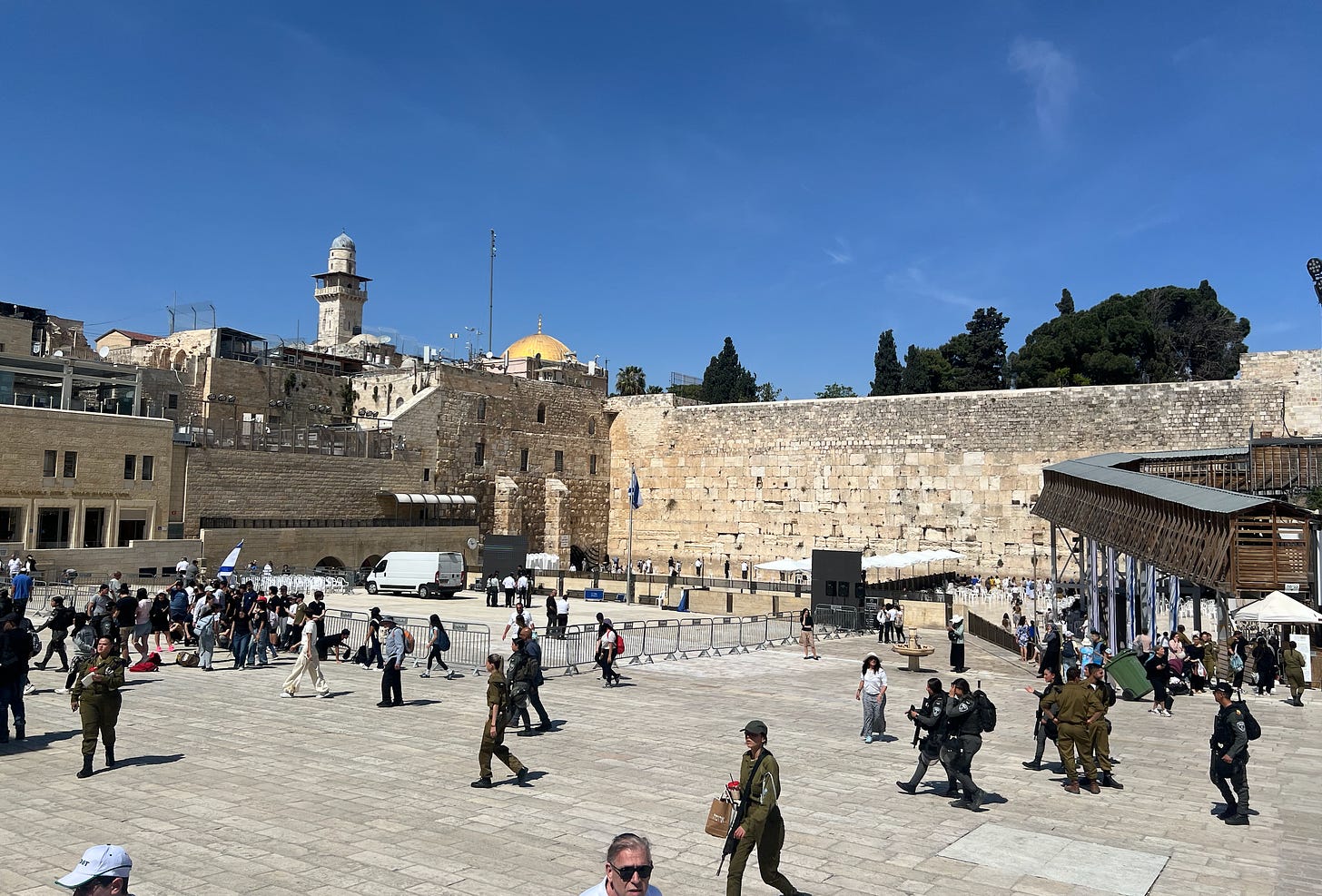
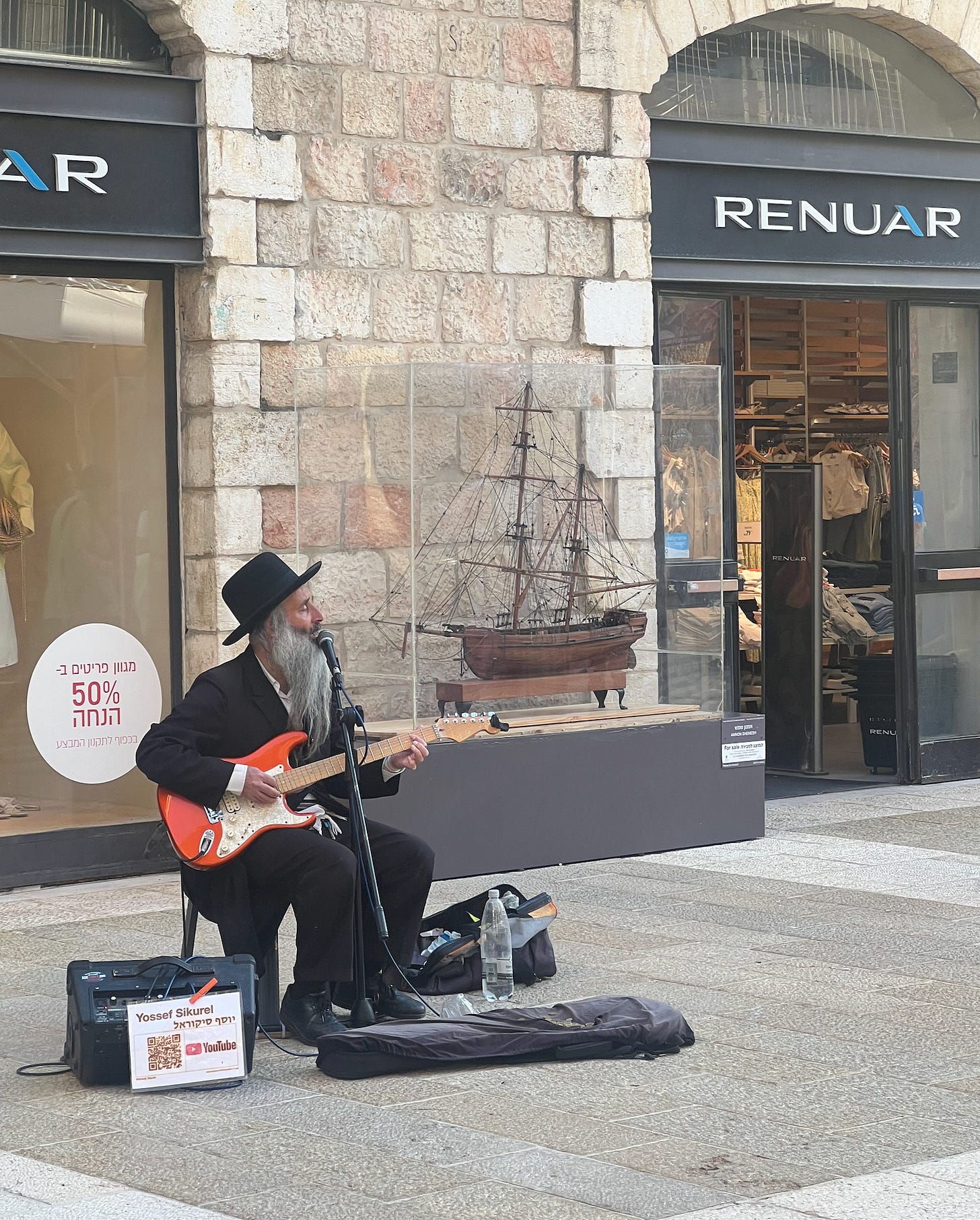
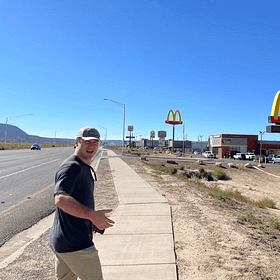
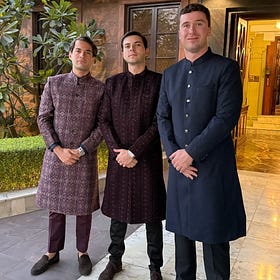
There is no “war”. Israel is literally committing a genocide 40 miles from Tel Aviv. Some acknowledgement of this in your post would have been considerate.
if the zone of interest was a substack post lol